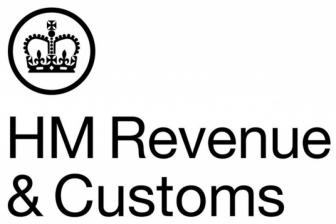With reforms to IR35 legislation looming in April, there must be many estate agents who are wondering if they will be affected in some way and need to change the way they manage their recruitment procedures.
The new rules will mean it will become the estate agency’s responsibility to check the employment status of their contractors and whether they fall under the IR35 legislation, particularly if those contractors are, in effect, doing the same job as an employee.
Currently, individual contractors are responsible for making this decision themselves and paying any tax and National Insurance like a full-time member of staff. From April, the obligation to assess the engagement falls to the end user of the services, with the fee payer being responsible for withholding PAYE and National Insurance.
The ‘off payroll’ reforms in the private sector only apply where an individual provides their services through an intermediary such as a personal service company and there’s a mountain of questions from HMRC to go through to determine their employment status.
This could apply to contractors you use for financial services, any form of consultancy, I.T, sale board erectors, leaflet distribution, recruitment, project management – and even your cleaners, particularly if you are their only client and they use your cleaning materials and work only at the time you allot them.
Agents such as Purplebricks, Yopa, Keller Williams, EXP franchises and smaller agents will no doubt be looking at their contracts, if they haven’t already done so, and making changes if required.
There will be no hiding place for any agency if HMRC comes knocking; if companies are not trading legitimately then the retrospective costs could add up to millions.
It is little wonder then that when this rule change was introduced for contractors in the public sector in 2017, many companies chose to employ people instead to avoid the paperwork headache along with the threat of an HMRC inspection. This led to the pool of contractors, particularly in the IT sector, diminishing, impacting the talent pool.
For contractors themselves, it will make a sizeable difference to their take-home pay if the company they work for determines that they are inside IR35, as their fees will have to be paid net of ‘payroll’ taxes.
As for HMRC, it’s their way of clamping down on tax avoidance and they expect to add a few billion pounds to their coffers.
If you fail to comply, you could get fined as well as have to pay a late payment penalty on top of the original tax and NI liability plus interest. The rules are complex and you can use the Check Employment Status Tool (CEST) on the HMRC website or use their helpline but it’s also advisable to check with your accountant.
My personal view is that we will see 1,000 to 2,000 agents move to employed status.
Paul Smith is chief executive officer of Spicerhaart.




Another ‘my Partnership model is better than the self-employed model’ article disguised as value about tax changes designed to insight fear in those who value their own worth and have broken away from an archaic model that only benefits people like himself. After what this man did to his ‘family’ last year, I’m surprised PIE continue to give him a platform where he can pretend to be an industry ‘leader’.
You must be logged in to like or dislike this comments.
Click to login
Don't have an account? Click here to register
PS doesn’t do anything in public without an agenda!!
therefore it continues to baffle/amaze me that eye provide him with a platform.
perhaps he pays them?!
You must be logged in to like or dislike this comments.
Click to login
Don't have an account? Click here to register
it seems as if PS can no longer be allowed to make a comment on the industry without regular commentators on this forum taking their own self indulged opportunity to drag up irrelevant issues from the past. The issue he raises here is a serious one and for those of us who work in an arena where IR35 is a concern they will or should truly understand the challenge they face ahead. It will have a huge impact on both the “employee” and the firm and will have impact on both revenues and personal earnings. This will change the shape of many businesses operating models for sure and disrupt perhaps destroy their current business forecasts.
You must be logged in to like or dislike this comments.
Click to login
Don't have an account? Click here to register
It’s not very accurate. PIE should fact check.
IR35 applies to firms with 2 or more of the following criteria:
a turnover of £10.2m, a balance sheet of £5.1m, and a payroll of more than 50 employees.
You must be logged in to like or dislike this comments.
Click to login
Don't have an account? Click here to register
Do agents need to become worried because of this article?
IR35 rules are designed to assess whether a contractor is a genuine contractor rather than a ‘disguised’ employee, for the purposes of paying tax.
Quote: Private sector contractors – you’re responsible for determining your IR35 status. But this is set to change from April 2021, when medium-sized and larger clients will be responsible for determining your IR35 status. The end-client, or the agency or third party who pays you, will deduct your tax and National Insurance contributions (smaller clients are exempt from the change) A small end-client will fall under two or more of these requirements:
turnover of no more than £10.2 million
balance sheet total of no more than £5.1 million
no more than 50 employees
This is more to do with big players using “self-employed contracts” to dodge tax and employee benefits loop hole. Naming no names but time has caught up with someone!
I wonder how many agents (95% of the industry) started to panic over PS goof?
You must be logged in to like or dislike this comments.
Click to login
Don't have an account? Click here to register